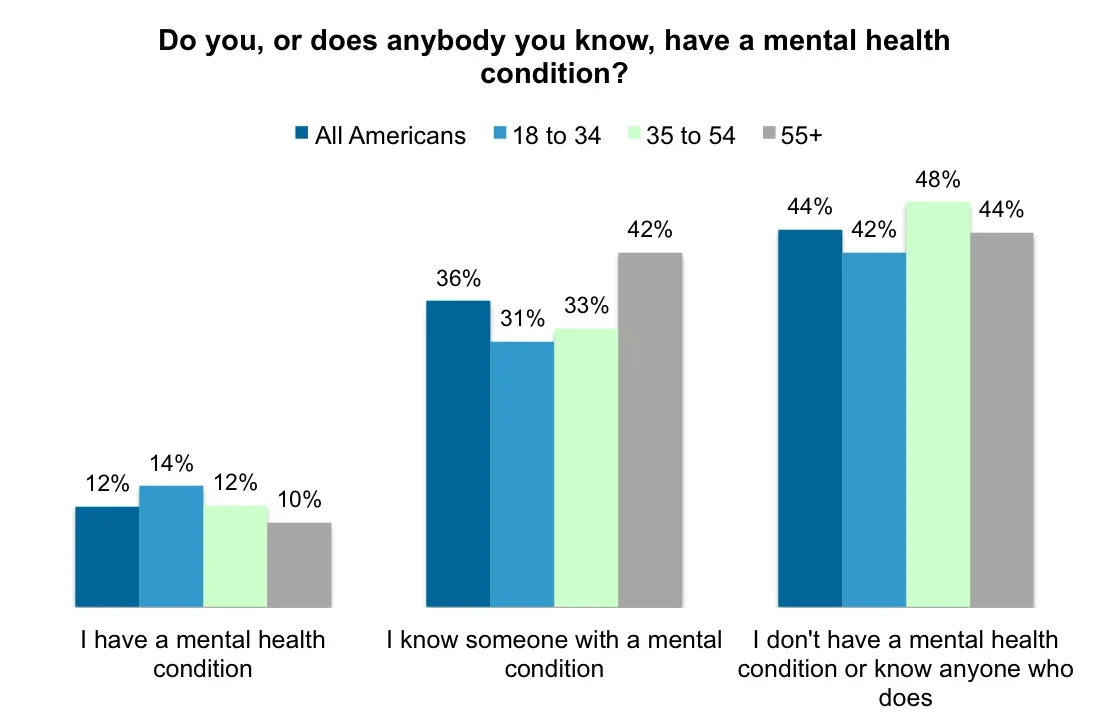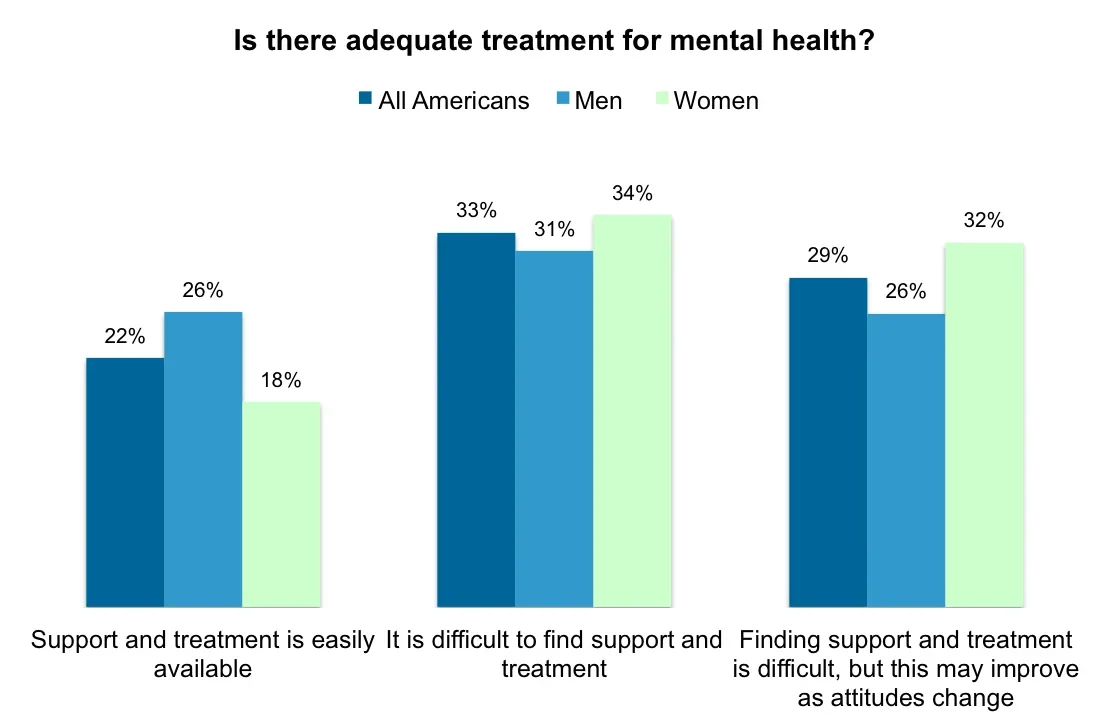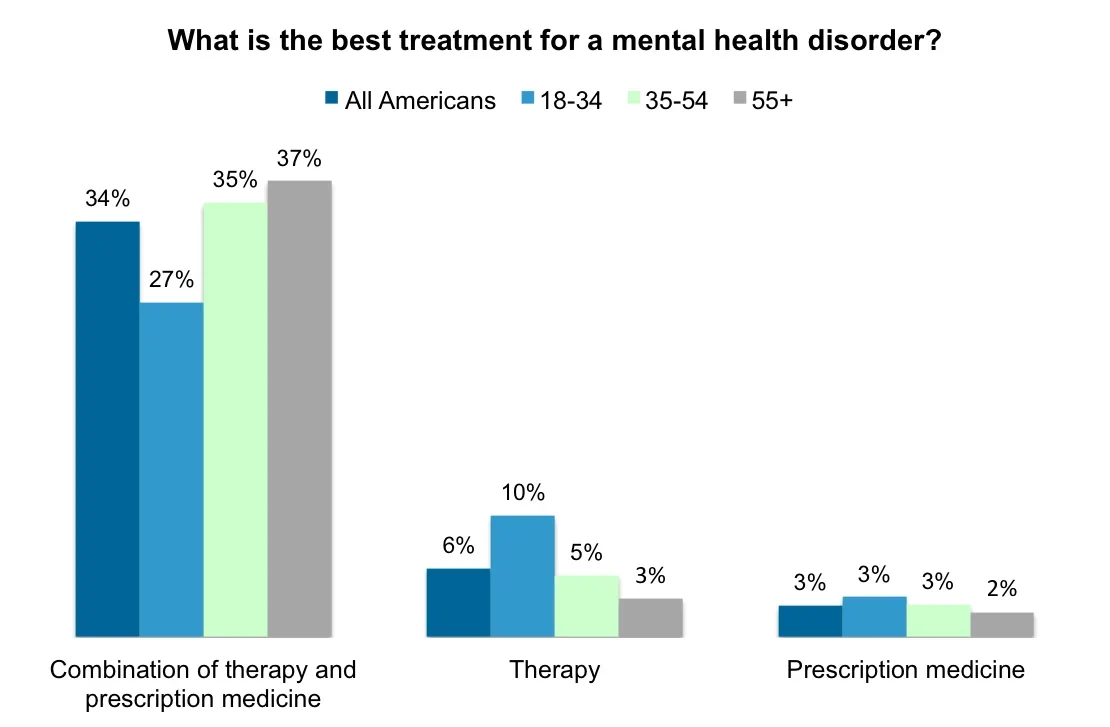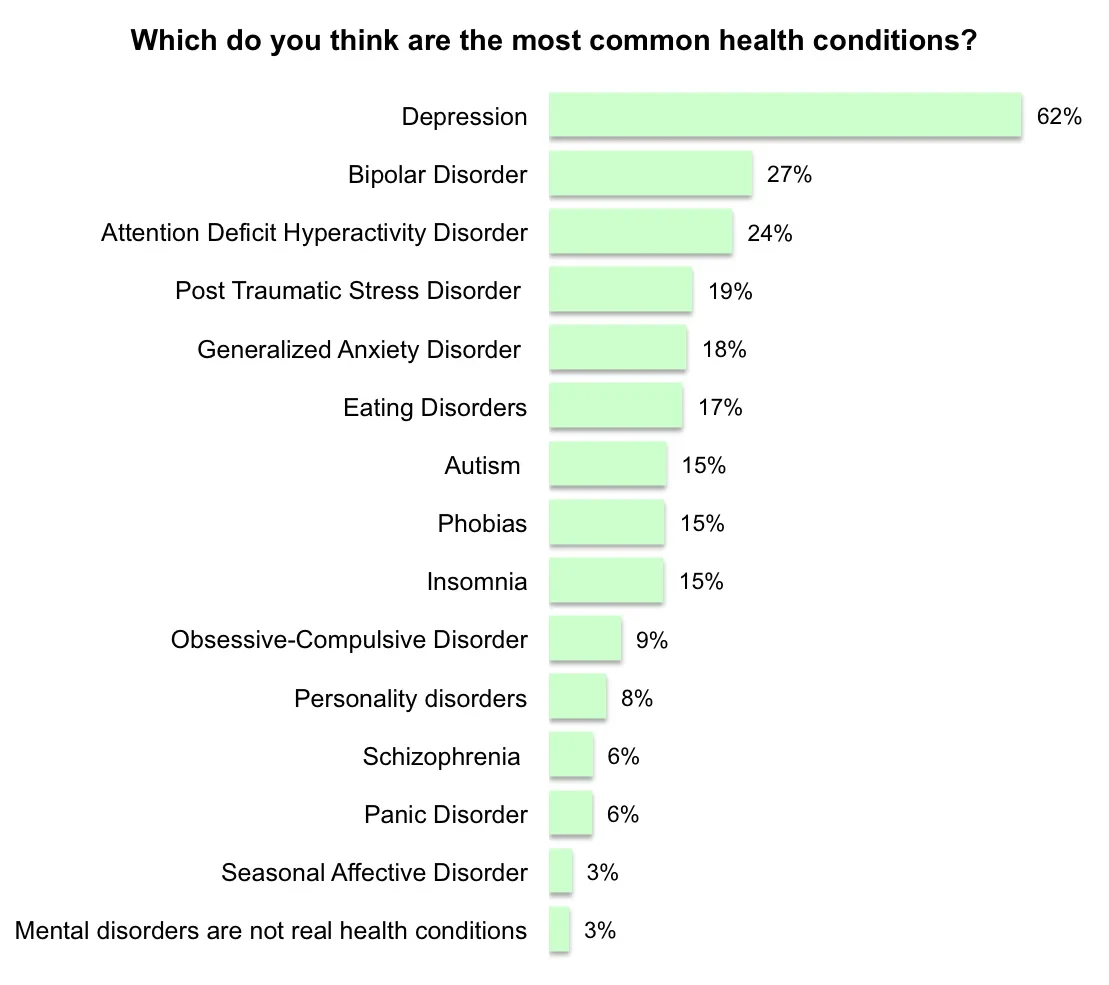With 12% of Americans stating that they have a mental health condition, the issue of mental wellbeing – which can affect physical health and relationships with those around us – is not something that impacts only the minority.
Although more than one in ten of those living in the US feels that they have issues with their mental health, just 36% of Americans say they know someone with a mental health problem – indicating that not everyone with a psychological or emotional condition speaks openly about it.
With depression being named the most common mental health condition that affects Americans, recent drives to encourage people to feel more comfortable speaking about mental health include a campaign by President Obama. “We wouldn't accept it if only 40 percent of Americans with cancers got treatment,” he said at the National Conference on Mental Health in Washington last June. “So why should we accept it when it comes to mental health?”
A ‘real’ health problem?
Although the Government estimates that just 17% of Americans are considered to be in an optimal state of mental health, there remains a stigma associated with mental problems. 44% of Americans said they are unaware that anyone they know, including themselves, has a mental health condition, while 3% of the nation thinks that mental conditions are not real health problems at all.
Younger people identify as having mental health issues more so than older people. 14% of 18-34 year olds say they have a mental health condition, compared with 10% of those aged 55 and over – either the millennial generation faces more problems that could affect them psychologically, or are better at self-diagnosis when it comes to mental health. Despite the higher awareness among younger people, the US Centers for Disease Control and Prevention (CDC) identified older people as an at-risk group, estimating 20% of adults aged 55 and over have a mental health disorder such as anxiety, cognitive impairment or mood disorder.

Finding the right treatment
29% of Americans agree that finding support and treatment is difficult for individuals with a mental health problem, but that this may change in the future as people’s attitudes become more open to mental issues.
One third of the nation says that individuals with a mental health condition find it difficult to find support and treatment, while 22% think that help is easily available to individuals with mental health problems.
With the enactment of the Patient Protection and Affordable Care Act in January 2014, mental health will become one of a package of ‘essential’ benefits offered by insurers. It was only from 2008 that insurers were no longer able to deny coverage for mental health issues.
Individuals with mental issues of all types may also contact support organizations, charities and helplines such as the National Institute of Mental Health, Depression and Bipolar Support Alliance, Hopeline and National Suicide Prevention Lifeline.

For 34% of Americans, a combined treatment of prescription medicine and therapy is the best way to treat someone with a mental health issue. Just 3% of the nation thinks that a drugs-only option is the most effective way to treat mental health problems. A therapy-only solution was more popular among under-35s (10% of 18-34s) than those aged 35 and over (5% of 35-54 year olds and 3% of over-55s).

62% of Americans think that depression is the most common mental health condition. Government estimates agree – recent figures suggest depression affects more than 26% of the adult US population. Second to depression is bipolar disorder (27%) and attention deficit hyperactivity disorder (24%). 19% of Americans thought post traumatic stress disorder was the most common health condition in the US.
The CDC posted the grim prediction that by 2020, depression will be the second leading cause of disability in the world behind heart disease.
The figures below indicate that, for Americans, depression is by no means the only mental health condition that is prevalent in people’s minds.

For further information about poll results, and for details about methodology and Omnibus research services, please email omnibus.us@yougov.com.
Click here for full results.
Image: Getty.









